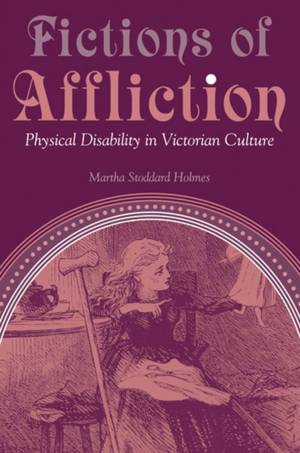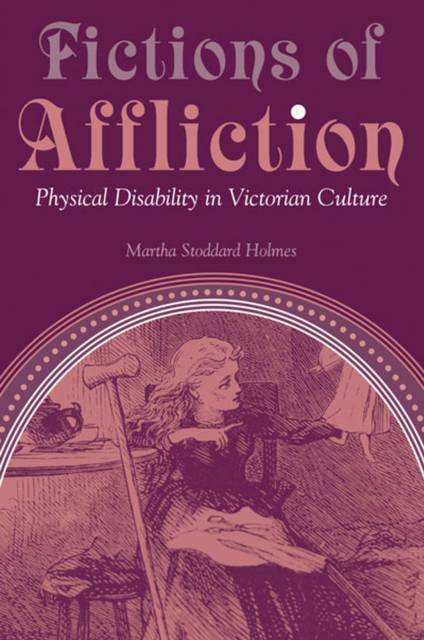
- Afhalen na 1 uur in een winkel met voorraad
- Gratis thuislevering in België vanaf € 30
- Ruim aanbod met 7 miljoen producten
- Afhalen na 1 uur in een winkel met voorraad
- Gratis thuislevering in België vanaf € 30
- Ruim aanbod met 7 miljoen producten
Zoeken
€ 34,45
+ 68 punten
Omschrijving
"Highly recommended . . . Holmes moves seamlessly from novelists like Charles Dickens to sociologists like Henry Mayhew to autobiographers like John Kitto."
---Choice"An absolutely stunning book that will make a significant contribution to both Victorian literary studies and disability studies."
---Rosemarie Garland-Thomson, Emory University"Establishes that Victorian melodrama informs many of our contemporary notions of disability . . . We have inherited from the Victorians not pandemic disability, but rather the complex of sympathy and fear."
---Victorian StudiesTiny Tim, Clym Yeobright, Long John Silver---what underlies nineteenth-century British literature's fixation with disability? Melodramatic representations of disability pervaded not only novels, but also doctors' treatises on blindness, educators' arguments for "special" education, and even the writing of disabled people themselves. Drawing on extensive primary research, Martha Stoddard Holmes introduces readers to popular literary and dramatic works that explored culturally risky questions like "can disabled men work?" and "should disabled women have babies?" and makes connections between literary plots and medical, social, and educational debates of the day.Martha Stoddard Holmes is Associate Professor of Literature and Writing Studies at California State University, San Marcos.
---Choice"An absolutely stunning book that will make a significant contribution to both Victorian literary studies and disability studies."
---Rosemarie Garland-Thomson, Emory University"Establishes that Victorian melodrama informs many of our contemporary notions of disability . . . We have inherited from the Victorians not pandemic disability, but rather the complex of sympathy and fear."
---Victorian StudiesTiny Tim, Clym Yeobright, Long John Silver---what underlies nineteenth-century British literature's fixation with disability? Melodramatic representations of disability pervaded not only novels, but also doctors' treatises on blindness, educators' arguments for "special" education, and even the writing of disabled people themselves. Drawing on extensive primary research, Martha Stoddard Holmes introduces readers to popular literary and dramatic works that explored culturally risky questions like "can disabled men work?" and "should disabled women have babies?" and makes connections between literary plots and medical, social, and educational debates of the day.Martha Stoddard Holmes is Associate Professor of Literature and Writing Studies at California State University, San Marcos.
Specificaties
Betrokkenen
- Auteur(s):
- Uitgeverij:
Inhoud
- Aantal bladzijden:
- 248
- Taal:
- Engels
- Reeks:
Eigenschappen
- Productcode (EAN):
- 9780472068418
- Verschijningsdatum:
- 1/02/2009
- Uitvoering:
- Paperback
- Formaat:
- Trade paperback (VS)
- Afmetingen:
- 150 mm x 229 mm
- Gewicht:
- 362 g

Alleen bij Standaard Boekhandel
+ 68 punten op je klantenkaart van Standaard Boekhandel
Beoordelingen
We publiceren alleen reviews die voldoen aan de voorwaarden voor reviews. Bekijk onze voorwaarden voor reviews.











